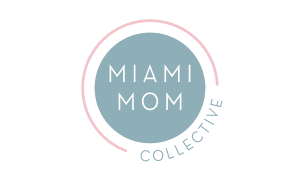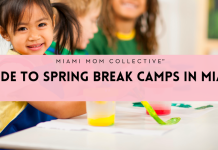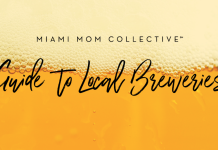Are you torn between adoption and giving birth biologically? Do you have a desire to become a mother and raise a child? Whatever your decision, just know at Miami Mom Collective, we celebrate all types of families!
Since November was National Adoption Month, I thought it’d be great to talk about adoption with a person who has personally helped families place their children and is currently an adoptive mother herself. Jessica L. Yates, Esq is a Miami mom who loves to teach classes and educate people about adoption and family law.
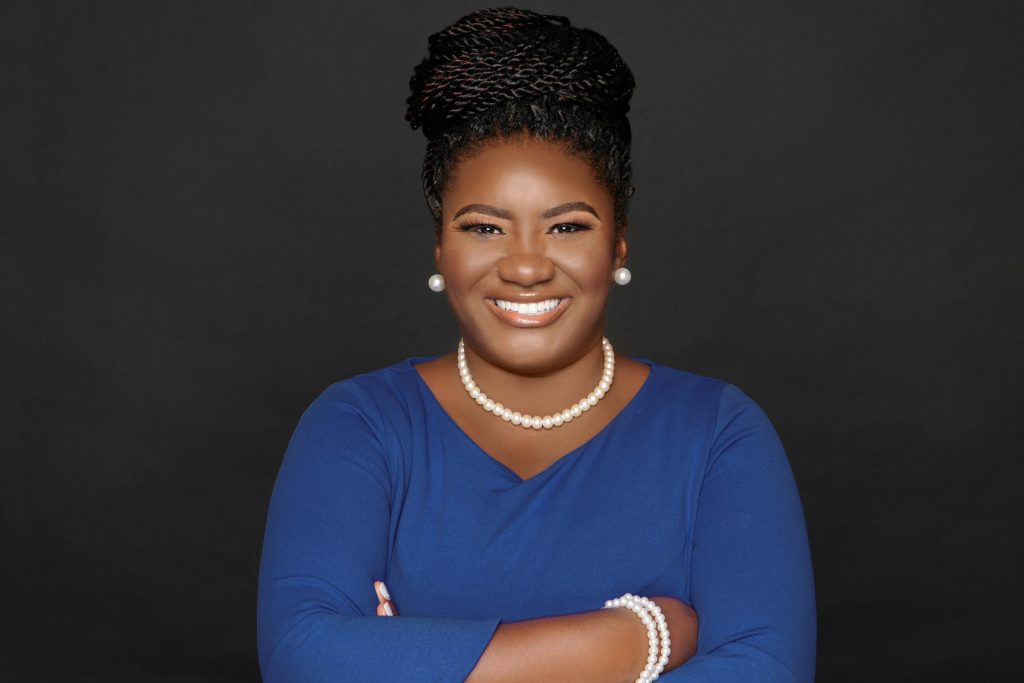
What is a guardian ad litem? I understand that’s the role that you’ve played.
Jessica: A guardian ad litem is an individual appointed by the court to advocate for the best interests of a child. In a dependency case, which is a case where a child has been placed in the custody of the state, there’s a statewide guardian ad litem program that provides the guardian to about 70%-80% of cases in certain counties. You can also have a guardian ad litem appointed for a child in family cases. In family cases, they can be attorneys or lay people with certain licensures and training in family cases. You will sometimes also have a guardian ad litem appointed to represent the child in a civil case.
For example, if there’s like a wrongful death of a parent a child needs a guardian to manage the settlement, or account for what should happen to that settlement in the child’s best interest because they are minor. Certain types of children are easier to place than others because it seems that everybody wants them. And then other children are more difficult to place because they’re just not “the preferred” type. I am a proponent of making sure that “unadoptable children” are adopted. I’ve had that happen a lot of times, I’m always happy to see it happen.
So is there ever a time where the guardian ad litem would make a recommendation for a family to go ahead and place a child for adoption? What would be some of those reasons why families are currently placing their children or babies for adoption?
Jessica: There are about 26 statutory reasons in Florida to terminate biological parents relating to child abuse related cases. Those range from all sorts of things like the child being born substance-exposed and the mother has had the opportunity to participate in and/or fail to participate in substance abuse treatment. Another example is that the child is the result of legally defined sexual acts that are criminal.
Instances where one parent has murdered the other, or been suspected to be the person who killed the other parent if they have legally abandoned the child–where they are available but don’t make their whereabouts known to participate in the care rearing and providing for a child for 60 days. Most of the time, private adoptions are voluntary and there’s no guardian ad litem involved with that. It’s simply the choice of the birth parents to place their children in private adoptions.
Adoptions from foster care are compulsory to a degree because the rights of their biological parents have already been legally terminated. Part of the process to terminate a person’s parental rights to their child includes a recommendation from a guardian ad litem at some point, whether it’s in the present or in the distant past, for their biological parents to be legally terminated.
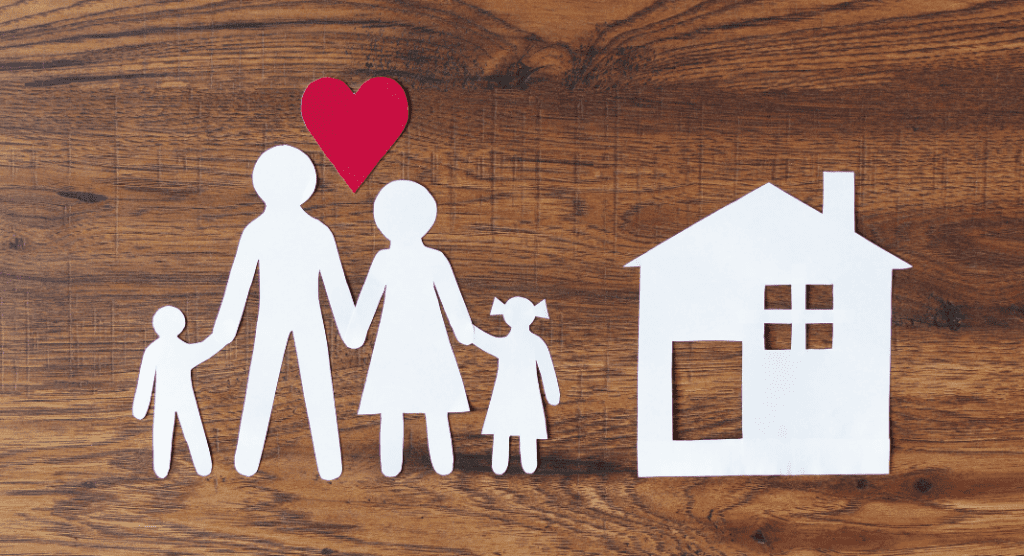
Why do some parents agree to place their children for adoption?
Jessica: We don’t have any of the social safety nets people think we do for parents. So it helped me see that sometimes people are placing children or losing them, whichever scenario is their scenario not because they don’t love them, but because we literally don’t have the safety nets in place for them to be parents.
When we do have parents agree to place a child for adoption it is possibly because they don’t want to:
-
be a legal parent because they don’t want to pay child support
-
have visitation or know they are incapable of doing these things
-
raise a child because a step-parent or family member can provide him with options and opportunities that they cannot
What is the difference between a foster parent and an adoptive parent?
Jessica: Foster parents are the extension of the state in the parenting capacity. When a state takes custody of a child from their biological parents, obviously, the state of Florida cannot hold on to kids. Like there’s no way for the state to house them. But foster parents, who are licensed by subcontracted agencies take custody of children temporarily. The children are not technically in the custody of the foster parent. They’re in the custody of the state under the protective supervision of the Department of Children and Families. The foster parent is the human extension of that authority.
What is the process to become an adoptive parent? What do you think are some characteristics of some really good adoptive parents?
Jessica: Functionally what makes you an adoptive parent is a court order. Until you have a court order, you are not an adoptive parent. We have many functional adoptions in our community. They happen all the time. For instance, aunts or uncles who hold on to nieces and nephews and raise them. Godparents raise godchildren to assist parents but you’re not legally established as that child’s parent until there’s a court order.
Once that court order is signed, that child’s birth certificate has your name on it as a parent, that child’s social has you listed as their legal guardians, you can sign off for medical treatment without consulting a third party, and you can put them in your will they inherit from you as if you gave birth to them. All adoptive parents go through a home study process. What it looks like varies.
If you’re a foster parent, you go through a different home study process that is similar, but it’s not quite the same. There are a couple of additional background checks and things and you can be disqualified from adopting if you have certain criminal convictions. You can adopt a child of any color, any origin. We have some social challenges that we have to overcome in the world of transracial adoption, but they do and can happen.

What are some of the requirements for someone interested in becoming an adoptive parent?
Jessica: The requirements include home studies, classes, background checks, possibly a physical exam, psychological in some instances, and financial information is also requested. They want to make sure that you have the ability and the means to parent a child.
-
Can you support a child physically, mentally, emotionally, psychologically, physically? Can you manage?
-
If a child has special needs?
-
Do you have a car to drive to all these different places?
-
Are you willing to accept maybe their cultural differences or their medical deficiencies?
Then you have to go through submitting those documents to the court. So adoptive parents need a lawyer.
So what are the costs that adoptive parents should expect?
Jessica: In adoptions where the children are coming out of foster care, the state absorbs the cost of those adoptions. They pay the filing fees and pay the attorney for their time. The state has already spent thousands of dollars attempting to rehabilitate the family and if impossible, terminating the biological parents’ rights. In family court, the adoptive family absorbs those costs.
So when people think, “Oh, adoption is just expensive, I can’t do it. I’m not gonna buy a baby. We’re not paying for the baby.” You’re really paying for all the services that come with having a baby come home with you, like us verifying that you’re safe and appropriate to be a parent. This includes post-placement visits, counseling, support, matching, and possibly communication post-placement by the social worker. I tell people all the time, it takes you about nine to 10 months of pregnancy to have a baby, it’s going to take you about as long to adopt.
What is the average cost for adoption here in Miami Dade County? Also, I’ve heard that foster parents, get some kind of stipend or something like that. But for those who are adoptive parents, are there any benefits to adopting?
Jessica: Okay, so healthy newborn with an agency depending on the race, I’d say somewhere between $18-$50,000. A lot of people have adoption benefits through their jobs and they don’t know it, and they don’t kick in until certain things happen. People fund adoption through grants, tax credits, employee stipends. If children are ethnic minorities, siblings, or have special needs there may be additional stipends.
So it’s always important when you’re considering adoption, whatever path of adoption you take, one of the first people I tell them to go talk to is their accountant and their HR person at work. For adopting from foster care, yes, the children do come with benefits. They’re mostly related specifically to the child and include things like health insurance and college tuition waivers in state schools.
Can you tell us a little bit about what that process was like for you to become an adoptive parent?
Jessica: I actually became aware we have a placement problem, not only in Miami-Dade but all over the State of Florida in the sense that we have more children that come into the system than we have homes and families ready and prepared to take them. During that placement crisis, I was like, okay, I’m going to become a foster parent. I knew I was going to do it. I just didn’t know when or how or whatever.
Most of the time, the children that look like you and me (I’m African-American, I am Brown)–most of the time, the kids who get bounced around who don’t necessarily have permanent placement are the black and brown children because everybody wants a healthy white, Hispanic, or white-passing looking child. How am I going to be a foster parent? I’m single, I’m a practicing attorney. I live in a one-bedroom condo, you know, how am I going to do that? So the church that I was visiting at the time, a friend had invited me to come. And hilariously, they were highlighting an adoption story that day.
Little did I know, the adoption story was for one of my kids whose adoption I had facilitated as a guardian ad litem. Then the church decided we’re going to host foster classes at our church. I finished classes in six weeks and got a bigger house. I followed thru with adopting children from a parent who previously placed her children for adoption.
I met them in November, they came home in February, we finalized in June. I think mine was a faster, simpler process, largely because I already knew what was required. I knew what I needed to do and who to talk to. I had known forever which adoption attorney I was going to use because I told them years ago I wanted them.
Nice, nice. And so what has this been like for you? You know, being an adoptive mother.
Jessica: Parenthood for me is the best thing I’ve ever done. I should have done it a long time ago. I wish that more people were open to this experience. I wish that people were a little more educated about the point. Because I do believe there truly is a family available for every child. We just don’t make the effort of trying to find that family. And/or be that family right, if it’s us. Parenting is not a death sentence. I can take them everywhere. They have been everywhere. They fit into our family perfectly. They fit in our birthday calendar perfectly. It made me change professionally. Well, it did, because now I work for myself. It just makes it more manageable.
What has parenting or motherhood looked like for you and what has that meant to you to be able to have adopted these children?
Jessica: There are some things that I thought I would never skip and I started to skip them. By the time we get dressed, I’m over it. Like we’re just not going. Now call me with virtually everything. This is great. We can be everywhere. We can be all the places all the time. There are so many people who say things I don’t think they mean to be offensive. “Oh, well, where are their real parents?” I am their real parent. I parent them every day. I am for all intents and purposes their parent.
It’s not a savior situation. I didn’t save my daughters. if anything, they saved me.
Also, it isn’t a “good luck” thing. They had to go through something traumatic in order for adoption to happen. That’s not a lucky thing. It’s great that I have them, and that I can adopt them. And I should be there for them and be that supportive adult parent figure for them. But they had to go through something to get to that. So adoption stories are not all roses and flowers, and whatever people think they are. There’s something traumatic that happened to that child. Even if it’s being separated from their birth family. Whatever the circumstances are, that’s still a trauma for them.

How has your experience as a black adoptive mom been for you?
Jessica: I think people are uncomfortable with adoption, especially in the minority community because it has a very high overlap with mental health. You have to consider, contend with, and think about mental health every day. I think you [people] should contemplate how you just treat moms in general, because I’ve gotten my fair share of like eyes and like weird treatment because I purposefully don’t say I’m an attorney.
I wear jeans and a mom shirt and a top bun to appointments for school. I do it just to see how people are gonna treat me. Some assume, “Oh, my God, young black woman… you just have kids… you don’t even know their dad.” I’m like, “Pump your brakes. I chose to be their parent. I’m single, I’m an attorney.” And as soon as I say that the conversation changes.
At that moment, they realize that they should treat me and the other kid in their class’ mom the same way. It doesn’t matter how they got them, or where they got them from. Taking good care of them is what matters. So I have had my fair share of those experiences too.
Where do you get your inspiration as an adoptive mom?
Jessica: There are now safe places and communities for adoptive parents to convene and meet other adoptive parents, which was not a thing before. I’m in a group called FAB Moms filled with fabulous adoptive black moms who adopt kids from all over the country.
It’s nice to connect with someone who understands all of the extra things that you go through as an adoptive parent that you don’t have to think about. But you get to choose whether you think about them or not. It’s awesome being able to have my kids meet other adopted kids. They don’t feel alone because they’re in a separate adoption community.
You seem to have such a wealth of knowledge about adoption. Is that why you wrote your book?
Jessica: Absolutely and the truth is, if I wrote everything, it would be some anthology looking book! It’s kind of short, sweet, and to the point. I tried to keep it small. So small, you can probably read it in a weekend while hanging out on the beach. “The Case For Adoption” basically gives a high-level overview with quite a few tips about adoption because I found that the general populace just knows little about it. Unless you are adopted, have adopted or you work in the arena, you have no clue that all this stuff is going on in the backdrop.
So I included some info for birth parents, adoptive parents, family members, or anyone that may be a part of the village for an adopted child. I also provide information about some of the various heart galleries where someone may find a child. It makes boys and girls, of all ages, races, colors accessible to adoptive parents.
What is some advice you can share with a mompreneur (an entrepreneur and mom) interested in adopting?
Jessica: Get yourself a village. My village showed up, and the village was healthy and strong! Let us not lose the concept that there shouldn’t be orphans. Like that’s my personal position. I understand that there are several tribes in Africa where they don’t have them. Why is that? It’s because the adults in that village make it their personal responsibility to raise those children. I believe that should be the same premise, as a community as a country.
To everyone considering adoption, rest assured, you’ll know exactly when you’re ready. For now, I hope reading this blog is a good first step to prepare to adopt in Florida.
